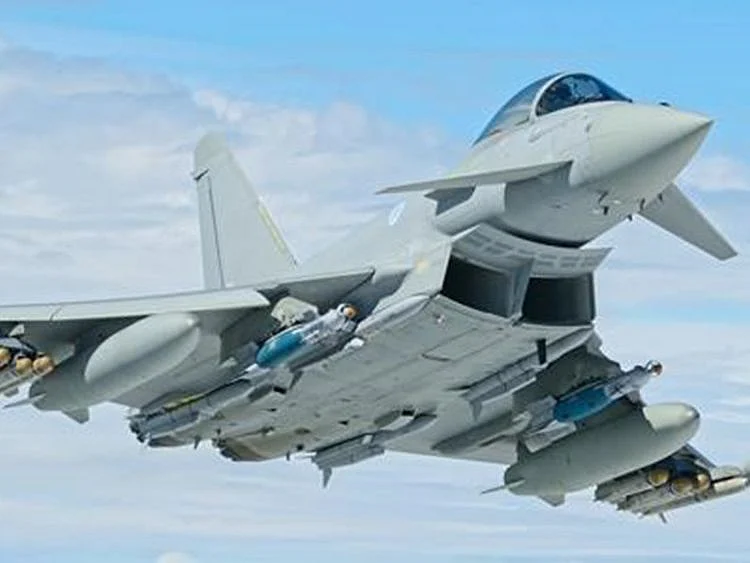Also In This Package
Photos: 'Ring of fire' solar eclipse wows across Asia
Flight details for repatriation of Indian nationals
Biennial Kuwait Aviation Show kicks off with flypasts
Pictures: Nadal launches new tennis academy in Kuwait
9 years of Syrian war, 9 kids who dream of home
New York City set to crackdown on illegal fireworks
Abu Dhabi: Investigations by Kuwait’s permanent parliamentary committee to try the ministers involved in the Eurofighter aircraft deal have reportedly found large-scale misappropriation of state funds in securing a deal for the fighter jets. The probe has currently run into a stalemate over movement restrictions and health protocols that have been imposed in the wake of the coronavirus outbreak, but there are several questions and doubts that have already cropped up over the contentious defence agreement.
Sources familiar with the probe said the deal dating back to September 2015, when Kuwait and Italy signed a memorandum of understanding to purchase 28 Eurofighter jets in a deal valued at 8 billion euros (Dh33 billion).
The source said the value of the deal struck by Kuwait was much higher compared to the value of similar deals signed by Qatar to purchase 24 similar fighters at 5 billion pounds (Dh22.65 billion), while the Saudi Ministry of Defence had also concluded a contract to purchase 72 Eurofighter Typhoon combat aircraft (older generation) worth $8.86 billion (Dh32.58 billion). Oman also concluded a deal to buy 24 Typhoon fighters at a cost of $2.24 billion from the United Kingdom.
Deals with Airbus under scanner
Kuwait in recent years initiated criminal investigations into two large military aircraft deals involving Airbus — $9 billion Eurofighter Typhoon warplanes deal and a contract for 30 Caracal military helicopters costing $1.2 billion.
It has been reported that the price of the fighters reached $110 million per plane in deals entered into by several countries (UK, Austria, Germany, Belgium, Saudi Arabia and Oman), while in case of Kuwait, the price came to $321 million.
In addition to the actual deal, sources have cited reports that the original contract included several appendices for various ancillary facilities: Building a five-star club for use by the fighter pilots and a water desalination station for the fighter base. Contracts for building these facilities have been handed out to a specific local contracting company, even though such contracts are supposed to be offered separately to multiple contractors.
Verifying motives
While sources wondered whether the multiple annexes associated with the main deal, which could have kept the door open for corruption, still exist, they also pointed to the need to investigate the need for these annexes and to verify the motives behind the cancellation of any of these contracts.
In February, Kuwait’s parliament set up a fact-finding panel to probe alleged kickbacks in a deal between Kuwait’s national carrier — Kuwait Airways — and Airbus, with the latter reportedly paying massive fines to settle bribery scandals in January.
The parliament’s decision came after a special debate on allegations that Airbus had paid kickbacks to secure a 25-aircraft deal six years ago.
It also asked the Audit Bureau, Kuwait’s accounting watchdog, to investigate the deal.
Settlement in British court
In 2014, Kuwait Airways Co had ordered 15 Airbus A320neo and ten Airbus A350 aircraft, with delivery beginning last year and continuing until 2021.
Opposition lawmaker Riyadh Al Adasani told the parliament that Kuwait was mentioned in a settlement struck by Airbus in a British court on January 31, along with the names of some Kuwaiti officials and citizens.
Under the settlement, Airbus agreed to pay 3.6 billion euros in fines to Britain, France and the United States to settle corruption probes into some of its aircraft sales.
Days after the settlement, Sri Lanka ordered an investigation into a multi-billion dollar aircraft purchase from Airbus after the deal was named in the settlement.
The former chief of Sri Lankan Airlines, Kapila Chandrasena, was arrested on February 6 for allegedly receiving bribes relating to the deal.
Earlier in February, two senior officials of the Malaysia-based AirAsia stepped aside while authorities probed unusual payments received by the carrier, even as the fallout from the Airbus scandal reverberated across the industry.
Sign up for the Daily Briefing
Get the latest news and updates straight to your inbox
Network Links
GN StoreDownload our app
© Al Nisr Publishing LLC 2026. All rights reserved.
